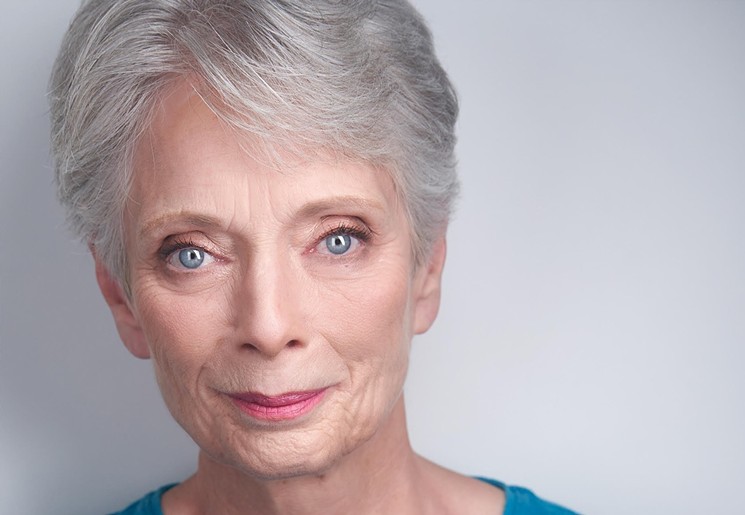
This article originally appeared in Westword.
Len Matheo, artistic director at Miners Alley Playhouse, kept the creativity coming during the pandemic, producing events from kids’ shows to streaming dramas to musical cabarets. Pre-COVID, the company staged an intriguing mix of contemporary and classic productions; this coming year’s focus is on local playwrights. Now, with the COVID threat apparently receding, Miners is offering a real, live, in-person opening July 16, the kind where you actually sit down in the theater, feel the living presence of actors, chat in the lobby during intermission and perhaps order a drink at the bar. This particular offering — Max Posner’s The Treasurer — looks particularly intriguing.
Posner, a young playwright who now lives in New York, began his career in a Curious Theatre New Voices summer program run by co-founder Dee Covington, went on to attend the Denver School of the Arts, and afterward completed a two-year program at Juilliard. Barely in his thirties, his ascent has been steady. He created a handful of well-received plays and garnered awards. The Treasurer was commissioned by Playwrights Horizon and premiered off-Broadway in 2017. With a stellar cast, it earned the kind of praise most playwrights can only dream of from the New York Times, among others. Not only will the opening of The Treasurer at Miners Alley mark the play’s regional premiere, but it’s also the first Posner play to be shown in his hometown.
The script isn’t the sole reason to catch this show. There’s also a stunning cast, a fine director and an intriguing mingling of personal histories and associations.
Most theater fans know of John Moore — named one of the twelve most influential reviewers in the country by American Theatre magazine during his stint at the Denver Post; onetime senior arts journalist for the Denver Center for the Performing Arts; and founder of the Denver Actors Fund, a one-of-a-kind organization that has so far distributed some $800,000 to theater artists needing help with unexpected crises. Moore has worked as an actor and director himself, having authored the play Waiting for Obama and helped develop the script for the Boulder Ensemble Theatre Company’s original documentary CO2020. During the past year, he also set up Moore Media, a journalistic-minded content agency that provides articles for clients such as the Denver Gazette. But Moore also found this COVID moment “a time to re-evaluate the direction we’re going in and how we want to spend our lives, to reconnect with our artistic sides.” He is now directing The Treasurer. Moore has known Posner since the playwright was a boy.
So has Billie McBride, who plays the leading role of Ida and who directed Posner in Lost in the Stars when he was in eighth grade. Hers has been “an improbable career,” says McBride. It includes twenty years working in New York City. “Along the way, lovely things happened,” she adds. “I got to tour the country with Angela Lansbury doing Gypsy, as well as being her personal assistant on the Sweeney Todd tour. I was also lucky to be asked to do Torch Song Trilogy and Safe Sex with Harvey Fierstein on Broadway. ”
Despite this impressive résumé and a number of fine performances since her arrival in Denver — Westword described her performance as cancer patient Vivian Bearing in Wit at Nomad Playhouse as “a marvel of generosity” — many of McBride’s peers feel she has never received the level of attention due her formidable talent. Posner, for his part, says he still remembers the wonderful stories McBride told about her life in the theater when he was in his teens.
The Treasurer centers on a lonely old woman who abandoned her family when her children were young but who now requires financial and organizational help from her adult son. Ida is strong, manipulative and certainly at fault for deserting her family. But the character is complex, says Posner.
“What Ida wants isn’t all the things her son thinks she wants,” he explains. “Not money, but a relationship that isn’t transactional. I hope we understand that she’s a lot of fun; it would be fun to find her outside of the paradigm of the play. She got married before she was twenty to someone she didn’t really want to be with. Her options as a woman were so limited at that time. She had a brutal choice to make, and there was bravery in deciding there was something else for her that mattered.
“There’s something very correct about my play finding Billie at this moment,” he comments. “As actors age, they only get better, but the parts available to them are fewer and fewer. I hope Denver gets to marvel at this incredible actor who has devoted her life to the theater.” Playing Ida, he adds, takes a performer through “such a difficult trajectory every night. I think Billie has an incredible voice, and the idea of her speaking the lines gives me chills.”
The unnamed son in The Treasurer has never forgiven his mother. “It felt as if there was something taboo in not liking a member of one’s family,” Posner continues. “We’re expected to treat familial relationships with such reverence. It sometimes prevents us from giving voice to the ridiculous and horrific feelings these relationships induce.”
And The Treasurer lacks the reconciliation we tend to expect from plays like this, according to Moore. “This is not one of those treacly plays where younger and older people come to some sort of epiphany, and it’s a love story,” he says. “All the characters in The Treasurer live in different cities, and it’s not about the mother having to come live with one of them. For her son, the only inheritance from this woman who abandoned him as a teenager is that now he has the burden of monitoring her financial affairs. Anyone who’s been a caretaker knows that’s not a fun job even when we love the person. What the son is struggling with is his guilt, because he doesn’t love this woman.”
“I was very young when writing this play,” says Posner. “It’s exciting to write about two older generations as a young person. I wanted the play to be fresh and wake those kinds of relationships up theatrically into a new form that felt less comfortable.
“I do think in our culture money plays a kind of primal role in how we come to understand ourselves and each other,” the playwright continues. “None of the characters in the play are struggling to survive, and yet money becomes the place where they unfold. The son’s goal in some ways is to avoid the sadness, loss and grief of his mother’s life. Given that he’s not looking to really face that because it’s hellish, money becomes the primary way that he is able to withhold or give love.”
“I’ve played pretty much every old woman there is,” says McBride, laughing. “I don’t see Ida as a monster. I see her as flawed, incredibly flawed, but I don’t see her as a monster. I know the things she did were horrible for her son and the family, but the way Max has written it, there’s a great deal of reason to understand her. One of the things she talks about is that when she married the son’s father, she was a child.”
She pauses for a memory: “When I was real young, I got pregnant, and back then you got married or gave that child up for adoption. My dream had been to be in the theater, and I had just begun, so I chose to give her up for adoption. I lived by myself. I got on the bus alone to go to the hospital when I was in labor.
“Thirteen or fourteen years ago, my daughter got in touch with me,” McBride continues. “She’s presented me with five grandchildren. We hit it off, and the kids and I have gotten so close over the years that I can’t imagine not having had them. And one of them is a would-be actor, so I think I have one with my genes. Everything that happens to us affects the way I see everybody I play.”
McBride is supported by an exceptionally strong cast. Augustus Truhn, who plays the son, is “one of the best actors anywhere,” McBride says, and she greatly admires Jasmine Jackson and Peter Trinh, each of whom takes on several roles. “To finally come back after everything has been closed for so long and to be able to get on stage with these people — I can’t lose,” she says.
The Treasurer tends to touch a very personal chord, both for those involved and for viewers. Posner’s father, on whom the character of the son is based, saw the play in New York and was “incredibly receptive and game,” says Posner. “I’m lucky he gave his blessing. I think it brought us closer.”
In addition, many of the audience members at Playwrights Horizons were in their sixties or seventies, and there was an outpouring of memories during talkbacks.
“It seems no one finishes life without having a story that’s kind of like this,” says Posner. “There’s confusion about what we owe our parents and what we owe our children. And there’s the very modern problem of not knowing the rules anymore.”
The Treasurer opens July 16 and runs until August 7. For tickets and information on the rest of the Miners Alley season, which continues with John Ashton’s Before You Go on August 27, visit Miners Alley online.

Recent Comments